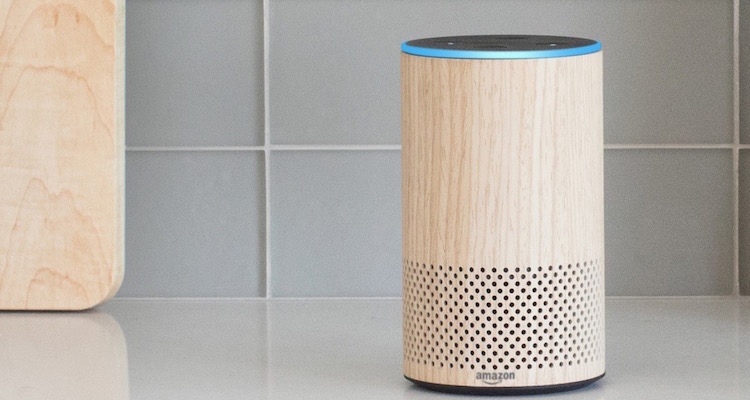The world of eCommerce is gearing up for a growth spurt with recent investments by industry leaders in AI, logistics, and data integration. While key events, like the expiration of Amazon’s 1-click buying patent, are leveling the playing field.
Using AI to guide us, eCommerce is bound to soon penetrate all aspects of our lives, making seamless ordering and same day delivery the norm. Let’s take a look at the movers and shakers of online retail and what important updates have happened in the past month:
Amazon’s 1-Click Buying Patent Expired
The most exciting news for eCommerce companies is that Amazon’s monopoly over 1-click buying is finally over. For those that are not familiar, Amazon held a patent for the 1-click buying code that allows return customers to purchase items with a single click using stored payment info.
Now the technology is available to everyone, and major Internet companies are planning to take it to just about any page on the web. Smaller online sellers will not be late to follow as 1-click buying has proven to boost sales and significantly improve the buyer’s journey no matter the size of the store.
While 1-click buying is leveling the eCommerce field, Amazon is making steady progress in making our living rooms smarter.
Source: AndroidCentral
Amazon is Betting on the Smart Home and Vehicle
Amazon is leading eCommerce in the direction of voice command and smart integration with the physical world around us. On September 27, the online retail giant announced a constellation of new Echo devices that aim to bring Alexa, Amazon’s voice assistant, to every living room. The company has even committed over 5,000 people to working only on Alexa.
Amazon has announced a series of devices that aim to further establish Amazon’s leading role in the smart home market:
- a new, smaller size Echo for $100,
- an Echo Plus with a built-in smart home hub for $150, and
- an Echo Spot, an upgrade of the Echo Dot, for $130.
The company also introduced Echo Buttons, small size buttons for games that connect to Alexa via Bluetooth, and a new Fire TV device. Amazon also announced Echo Connect, a device that lets users connect their home phone line to Echo and make hands-free calls, adding free calls to the US, Canada, and Mexico from all Echo devices.
This plethora of new products shows Amazon is serious about competing against Google Home and the soon to be released Apple HomePod. Samsung is said to be preparing to join the battlefield soon as well.
Amazon is also bringing Alexa to BMW vehicles in partnership with the German carmaker. Not one to be left behind, Ford is also working on integrating Alexa into their cars.
While Amazon is making the physical world around us smarter, its Chinese rival Alibaba is investing in global logistics.

Source: chuttersnap on Unsplash
Alibaba to Invest $15 billion in Global Logistics Network
Alibaba, which prides itself on its exceedingly global outlook, is investing heavily in logistics operations as the foundation for their global expansion. The Chinese company has invested $800 million in logistics firm Cainiao Smart, which it helped found in 2013, in order to take majority ownership. The move values Cainiao, which is still not profitable, at around $20 billion.
The Alibaba Group announced in September that it will invest $15 billion to grow its global logistics network over the next 5 years, and it seems Cainiao will play a big role in that expansion. Alibaba’s goal is to establish 24-hour deliveries across China and 72-hour order fulfillment globally.
In the meantime, Amazon was battling another giant, Flipkart, for dominance in the growing Indian market.

Source: Flipkart
Flipkart Fights Amazon for India’s Festival Season Sales
By 2025, the eCommerce market in India is projected to reach $220 billion in gross sales with 530 million buyers. It’s no surprise, then, why players like Flipkart and Amazon India were competing for a slice of the $1.5 billion in online festival season sales in September.
So who won? Flipkart allegedly beat Amazon in the festival season with the help of sales of smartphones and appliances. It sold $767 million over the course of its 5-day “Big Billion Days” sale, while Amazon India did only about half of that. Amazon is disputing the reported numbers, however, and claims to be the leader in the Indian market.
India is a very different market from the United States and Europe. Commerce in India still largely functions offline, but eCommerce is growing slowly. With the growing adoption of WiFi and smartphones in the country, this sleeping giant is sure to become one of the largest online markets in the world.
Two other global players chose not to fight over market dominance and joined their complementing forces to better serve eCommerce.
Source: HubSpot
HubSpot Updates its Integration with Shopify
HubSpot, a leader in CRM, marketing, and consumer experience, has taken its integration with Shopify to the next level. Their new integration allows Shopify sellers to bring their transactions’ data into HubSpot’s marketing platform.
“The combined power of Shopify and HubSpot gives our shared customers the tools they need to deliver even more sophisticated ecommerce marketing,” says Brad Coffey, Chief Strategy Officer at HubSpot.
This partnership gives online sellers access to powerful analytics tools, where they can measure and fine-tune their marketing efforts. They can keep an eye on purchasing patterns and analyze customer lifetime value. Merchants can also send transactional emails and use shopping cart activity to improve their responses and workflow.
The integration is currently rolled out only in limited beta and will become more widely available in coming months.
More innovation is to come as the online retail world gathered in London for the eCommerce Expo.

Source: eCommerce Expo
eCommerce Expo London
On September 27-28 in Olympia, London, the eCommerce Expo hosted tech companies and eCommerce innovators bent on improving the online experience. The event boasted 150 speakers who talked about everything from measuring interaction to boosting sales using AI.
Presenters included 8 keynote speakers, most notably Jeremy Waite and Martin Taverner of IBM’s Watson team, who talked about where AI is headed. They gave examples of how IBM customers use AI and flex Watson’s muscles.
More than 150 companies offered their products and services in everything eCommerce. The expo was a home to tech of all sorts, from accounting solutions and automation platforms to AI outfits like US-based Inbenta.
Companies like Jacada were pushing the boundaries of automated customer service, and leaders in payment and processing solutions like OFX reminded us that, for eCommerce, there are no borders.










